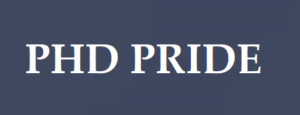Pursuing a PhD can be a thrilling and challenging journey, but it’s not without its setbacks. From research roadblocks to self-doubt, PhD students often face numerous obstacles that can test their resolve and resilience. In this blog post, we’ll explore the common setbacks PhD students encounter and provide practical strategies for building resilience to overcome them.
Common PhD Setbacks

Before we dive into coping strategies, it’s essential to acknowledge the common setbacks PhD students face:
- Research setbacks: Experiments fail, data collection is slower than expected, or results don’t align with hypotheses.
- Self-doubt and imposter syndrome: Feeling inadequate or questioning one’s ability to complete the PhD.
- Supervisor or committee issues: Conflicting expectations, lack of guidance, or disagreements with supervisors.
- Time management and pressure: Balancing research, coursework, teaching, and personal responsibilities.
- Funding and financial stress: Securing funding, managing finances, or dealing with uncertainty.
- Isolation and loneliness: Feeling disconnected from peers, family, and friends.
- Mental health concerns: Anxiety, depression, or burnout.
- Writing and publishing challenges: Difficulty writing, publishing, or receiving criticism.

Building resilience is crucial for navigating these obstacles and emerging stronger. This guide explores strategies to help you cope with setbacks during your PhD and build resilience.
1. Understanding Resilience
Resilience is the ability to bounce back from adversity, adapt to challenges, and keep moving forward. It’s not about avoiding difficulties but facing them head-on and learning from them. Recognizing that setbacks are a natural part of the PhD process is the first step towards building resilience.
2. Accept and Acknowledge Setbacks
It’s essential to accept that setbacks are a part of the journey. Acknowledge your feelings of disappointment, frustration, or sadness. Allow yourself to process these emotions rather than suppressing them. Acceptance is the first step toward moving forward.
3. Reframe Negative Thoughts
Negative thoughts can be paralyzing. Practice reframing them into positive or neutral thoughts. Instead of thinking, “I’m not good enough,” reframe it to, “This is an opportunity to learn and grow.” Changing your mindset can help you approach setbacks with a constructive attitude.
4. Develop a Growth Mindset
A growth mindset is the belief that abilities and intelligence can be developed through effort, learning, and perseverance. Embrace challenges as opportunities to grow. Celebrate your efforts and progress, not just the outcomes. This mindset can help you stay motivated and resilient.
5. Seek Support
Don’t hesitate to reach out for support. Talk to your advisor, peers, or a mental health professional about your struggles. Joining a support group or connecting with fellow PhD students can provide a sense of community and shared understanding.
6. Break Tasks into Manageable Steps
Large tasks can feel overwhelming, especially when facing setbacks. Break them into smaller, manageable steps. This approach can help you focus on immediate tasks rather than feeling overwhelmed by the big picture. Celebrate each small achievement along the way.
7. Practice Self-Care
Taking care of your physical and mental well-being is crucial for building resilience. Ensure you get enough sleep, eat a balanced diet, and exercise regularly. Engage in activities that bring you joy and relaxation, whether it’s reading, hiking, or practicing mindfulness.
8. Learn from Setbacks
Reflect on what went wrong and identify lessons learned. Use setbacks as opportunities for growth and improvement. Ask yourself what you can do differently next time. This proactive approach can help you build resilience and avoid similar setbacks in the future.
9. Maintain a Positive Outlook
Focus on your long-term goals and the reasons why you embarked on your PhD journey. Remind yourself of your achievements and strengths. Maintaining a positive outlook can help you stay motivated and resilient in the face of challenges.
10. Adapt and Stay Flexible
Flexibility is a key component of resilience. Be open to change and willing to adapt your plans when necessary. Sometimes setbacks can lead to unexpected opportunities and new directions. Embrace change as part of the journey.

Conclusion
Pursuing a PhD can be challenging, but it’s not impossible. By acknowledging common setbacks and implementing resilience-building strategies, you can overcome obstacles and achieve your goals. Remember:
- You are not alone.
- Setbacks are temporary.
- Resilience can be developed.
Share Your Story
How have you coped with PhD setbacks? Share your experiences and strategies in the comments below.
By supporting each other and building resilience, we can navigate the challenges of PhD life and emerge stronger, wiser, and more accomplished.
References:
Books
- “The Resilience Breakthrough” by Christian Moore (2015)
- “Mindset: The New Psychology of Success” by Carol S. Dweck (2006)
- “The PhD Experience” by Cynthia N. Simpson (2014)
- “The Imposter Syndrome” by Pauline Rose Clance (1985)
- “Overcoming Imposter Syndrome” by Suzanne Imes (2016)
- “The Thriving Doctor” by Sharon Roberts (2018)
- “Surviving Your Stupid, Stupid Decision to Go to Grad School” by Adam Ruben (2010)
- “The Academic Writer’s Workbook” by Irene L. Clark (2015)
- “How to Write a Lot” by Paul Silvia (2007)
- “The Productive Graduate Student” by Terry O’Hara (2014)
Articles
- “Building Resilience in PhD Students” by Emily A. Vogel and Susan A. Nolan (2020) – Journal of Clinical Psychology
- “Coping with Stress and Burnout in Graduate School” by Katherine R. K. Schultz and Natalie M. Daum (2019) – Journal of Graduate Education
- “The Impact of Imposter Syndrome on Mental Health in PhD Students” by Rachel E. Mosher and Emily A. Vogel (2020) – Journal of Mental Health
- “Resilience and Well-being in PhD Students” by Susan A. Nolan and Emily A. Vogel (2018) – Journal of American College Health
- “PhD Students’ Experiences of Stress, Anxiety, and Depression” by Sarah L. Davies et al. (2016) – Studies in Graduate and Postdoctoral Education
Online Resources
- The Thesis Whisperer (blog)
- The Guardian: Higher Education Network (PhD section)
- Inside Higher Ed: GradHacker (blog)
- The Chronicle of Higher Education: Advice (PhD section)

